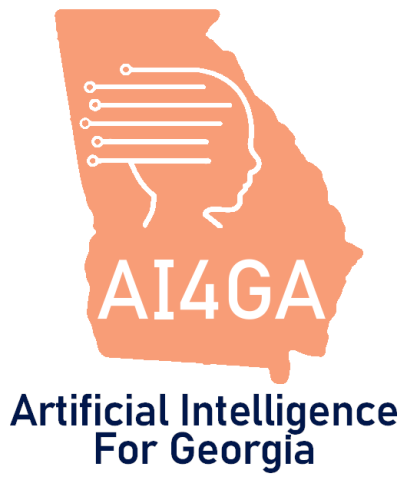Body
Image

An AI Elective for Georgia Middle School Students
“Living and Working with Artificial Intelligence” is a 9-week elective course for Georgia middle school students co-designed by the investigators and a cohort of six teachers. We created the course and professional development materials to study student and teacher AI learning. For students, we are interested in the most effective ways to promote interest in AI and robotics among different demographic groups who are underrepresented in STEM: rural white students, urban black students, and suburban Latino students. For teachers, we want to understand what kind of training and support teachers need to feel confident about teaching AI. Over the past three years we have trained 20 teachers and piloted the course with over 1500 students. Three units have been implemented: (1) Autonomous Robots and Self-Driving Vehicles, (2) How Computers Understand Language, and (3) Machine Learning and Automated Decision Making. Drafts of our course materials are available on the AI4GA.org website. Research findings: Middle school students can engage with AI concepts such as semantic feature spaces, decision tree classifiers, and linear threshold units when presented with sufficient scaffolding. They have strong preferences for activity-based learning and choice of projects. It takes approximately 1.5 years of training and practice for CS middle school teachers to become comfortable teaching AI content. Curriculum should accommodate different teaching styles: teacher-led vs student driven.
Pillar 1: Innovative Use of Technologies in Learning and Teaching
Students use a variety of online demos to gain hands-on experience with AI algorithms. Examples include Teachable Machine, Machine Learning for Kids, speech recognition demos, face recognition demos, Neuron Sandbox, AI extensions to Scratch, and the Calypso robot intelligence framework.
Pillar 2: Partnerships for Career and Workforce Preparation.
The curriculum provided opportunities for students to learn skills vital to AI-enable careers such as training a classifier, designing a robot, working with tabular datasets, and analyzing impacts of AI. The curriculum also featured applications of AI in different sectors of society and highlighted AI professionals and careers through videos and career cards. Several teachers created projects where students investigated the impacts of AI on industries in their county or explored the impact of AI on their chosen field.
Pillar 3: Strategies for Equity in STEM Education
The project intentionally recruited teachers and students from geographically and ethnically diverse populations to ensure that all students in Georgia had the opportunity to learn AI. We worked with rural, suburban, and urban districts to achieve this demographic diversity. Our curriculum allows teachers to choose from a variety of activities and adapt them to their teaching styles and the abilities of their students, including those with low reading levels or no prior programming experience.

Discipline(s)
Computer and informational technology science
Target Gradespan(s)
Middle school (6-8)
Target Participant(s)
Youth / students
Educators
Project Setting(s)
Formal Education
Category
Developing and Testing Innovations (DTI)